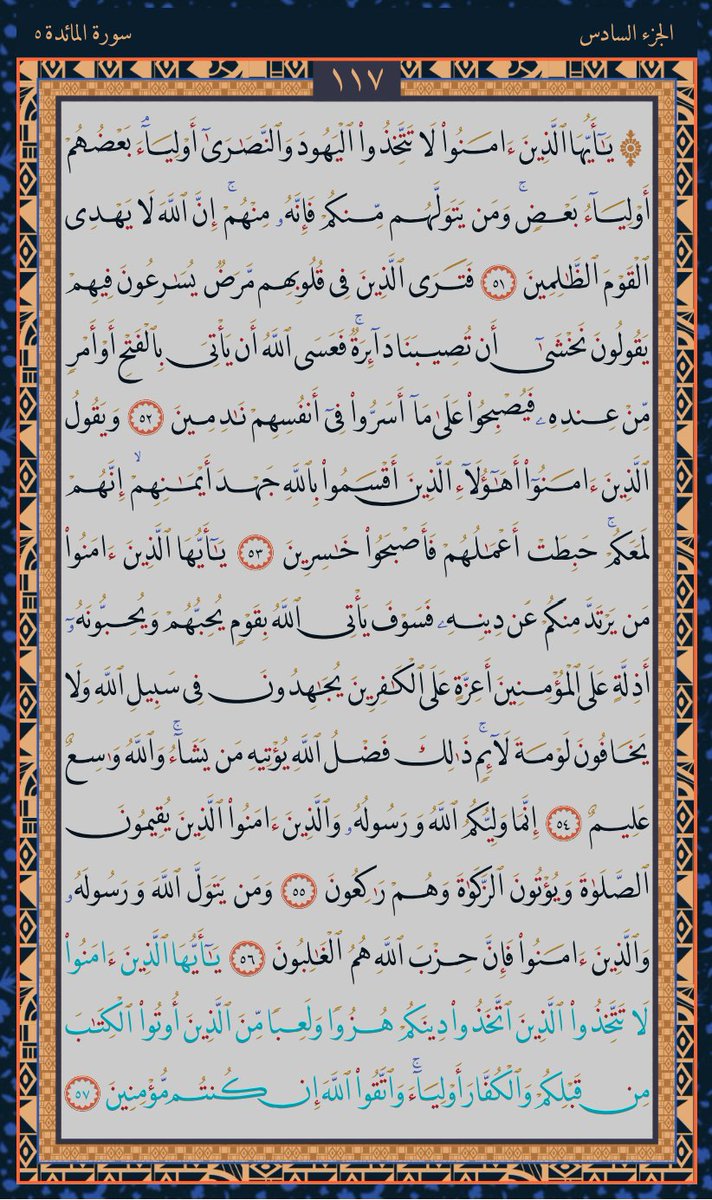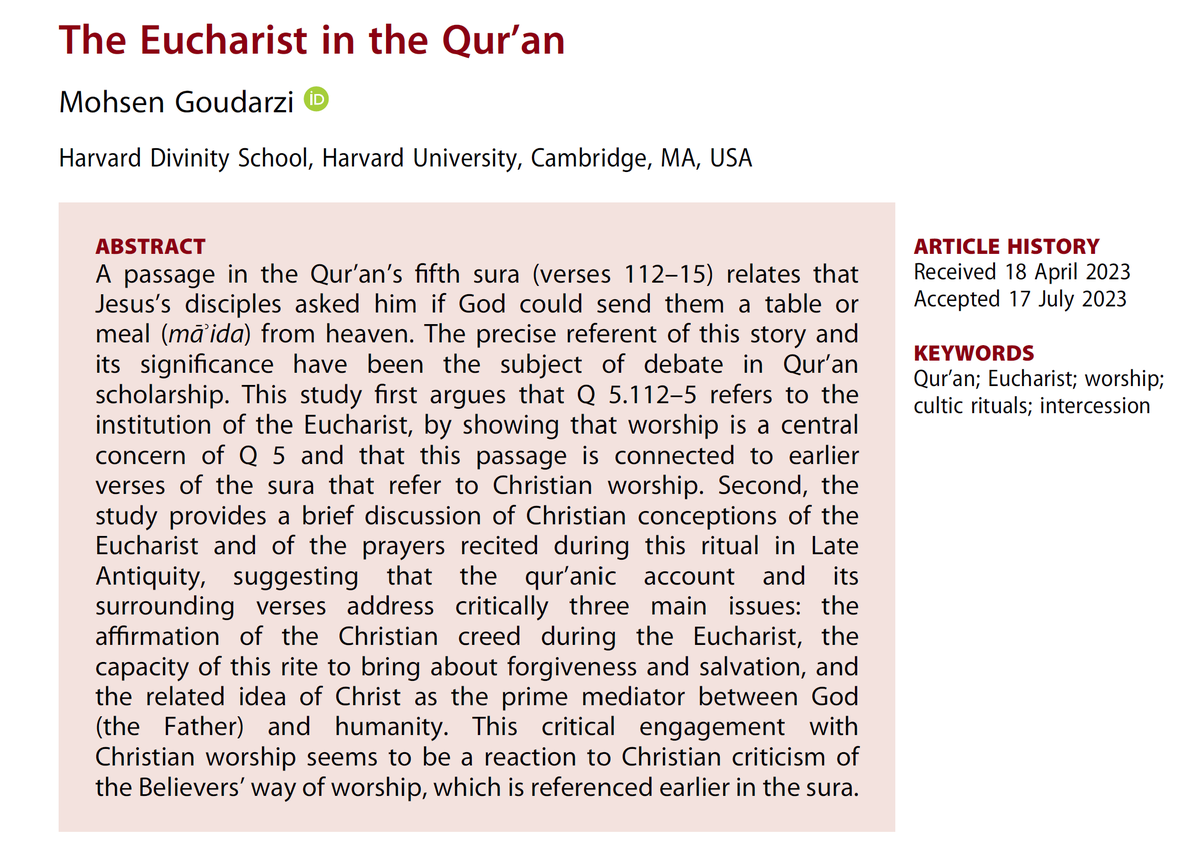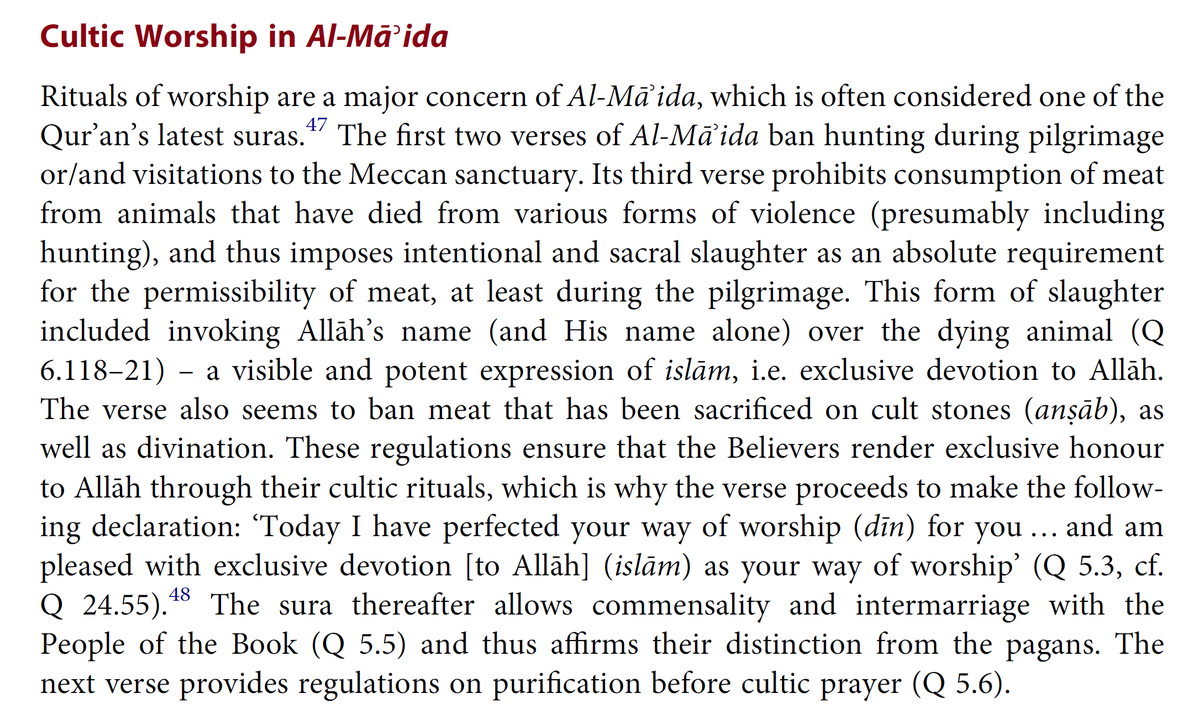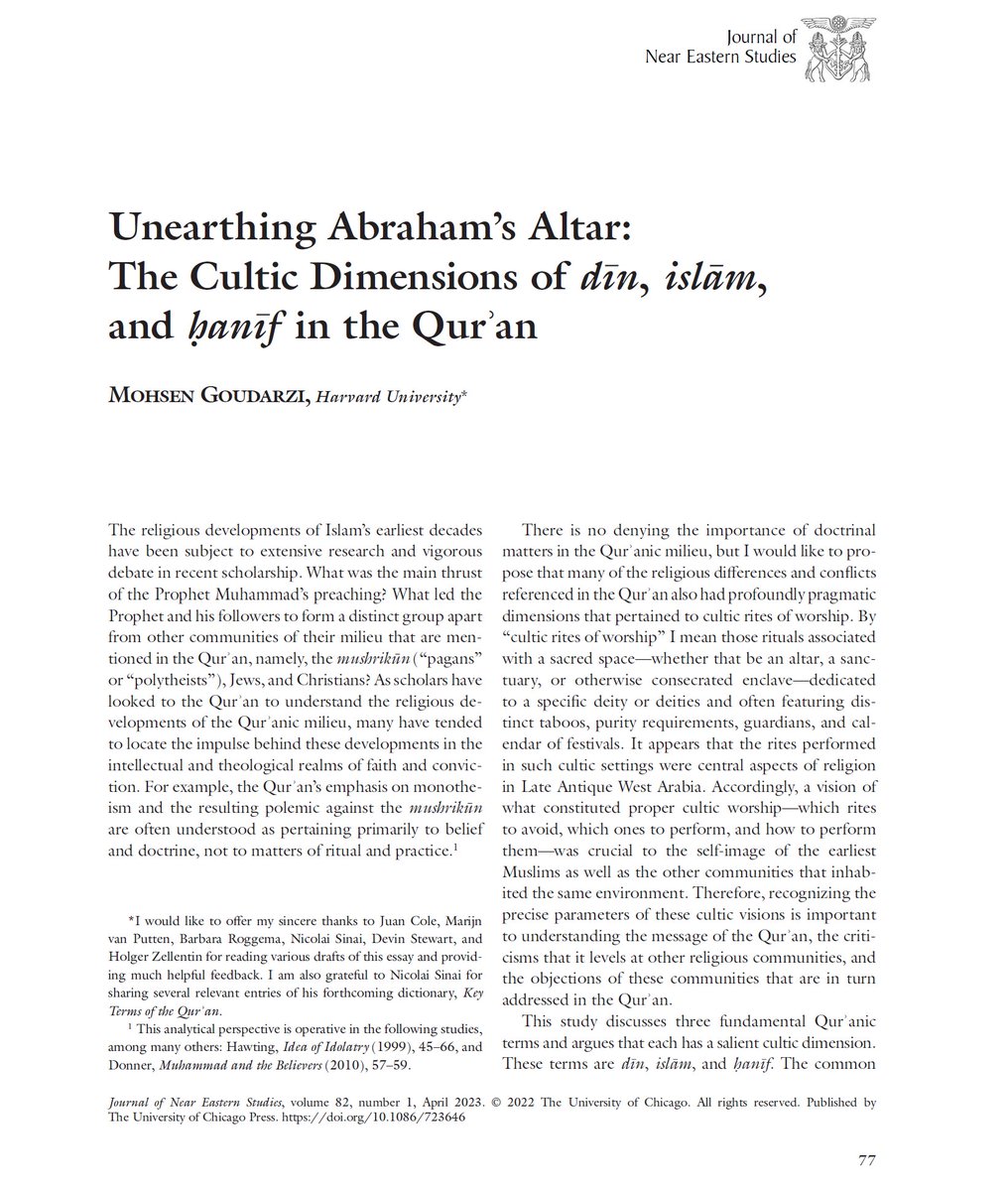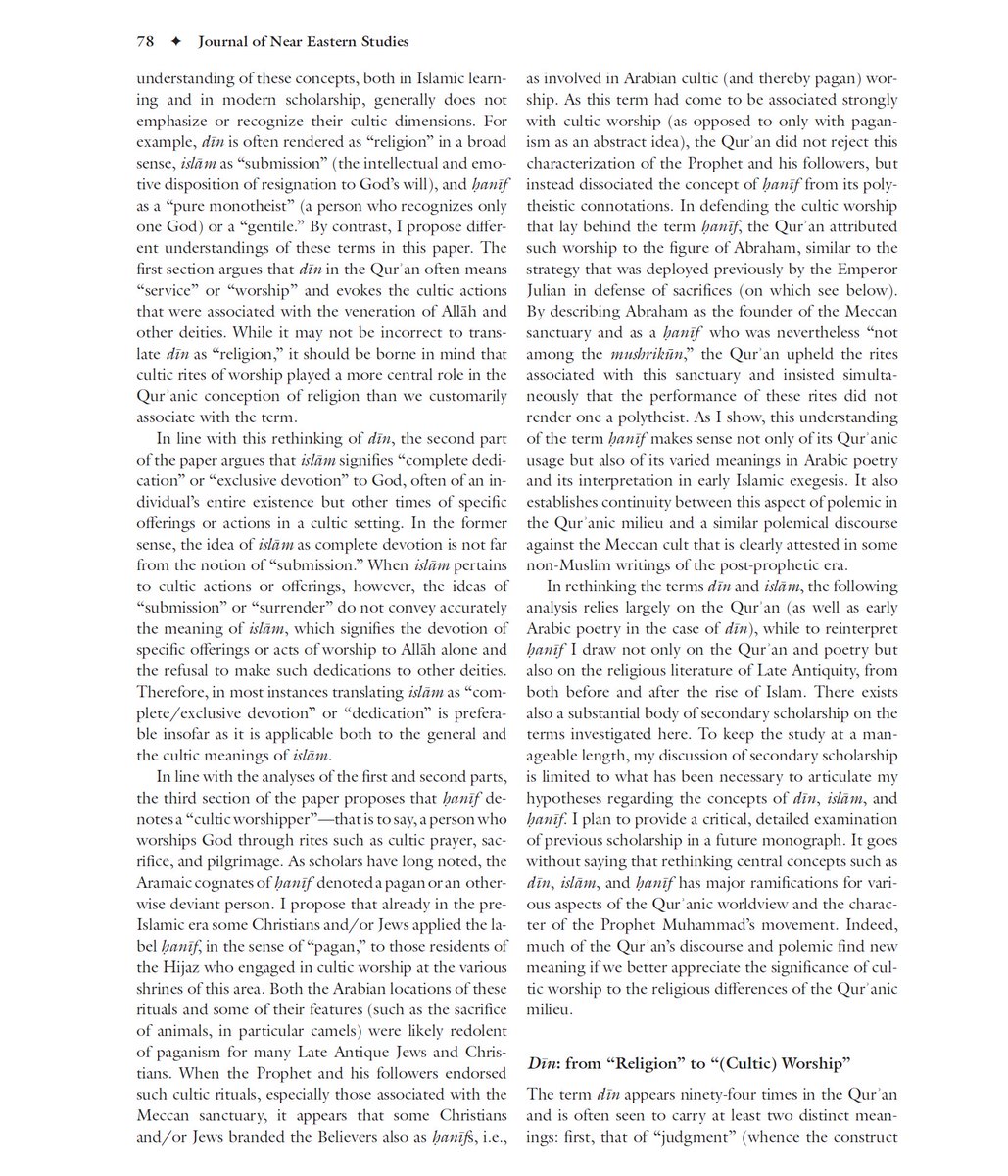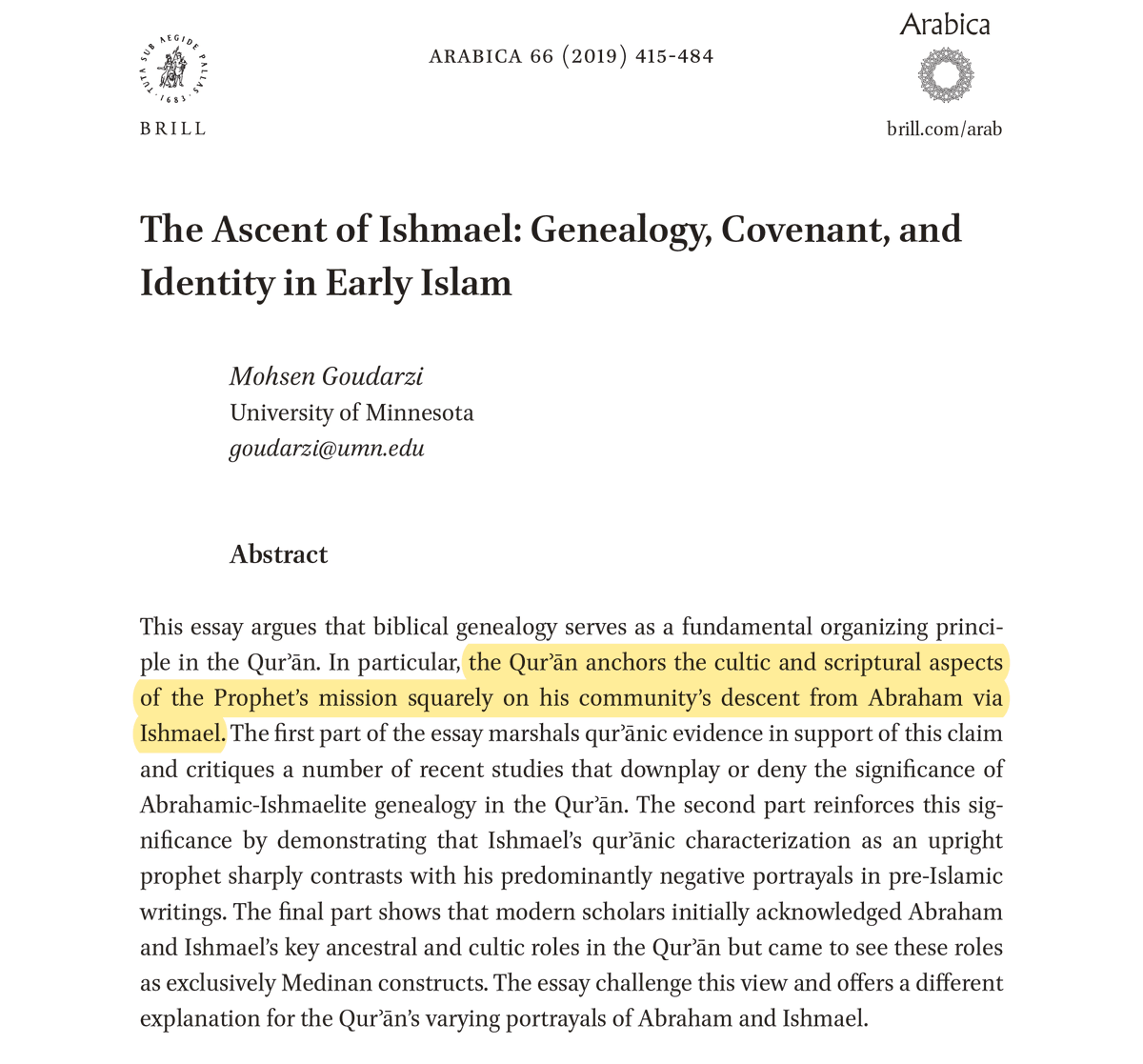1/15 It's a common view that 𝘪𝘴𝘭𝘢̄𝘮 means “submission.”
But in the Qur’an, 𝘪𝘴𝘭𝘢̄𝘮 seems to mean exclusive worship of God (𝘪𝘬𝘩𝘭𝘢̄𝘴̣) or “monotheism.”
This view is found in early exegesis & makes better sense of many qur’anic passages.
academia.edu/111333681/Wors…

But in the Qur’an, 𝘪𝘴𝘭𝘢̄𝘮 seems to mean exclusive worship of God (𝘪𝘬𝘩𝘭𝘢̄𝘴̣) or “monotheism.”
This view is found in early exegesis & makes better sense of many qur’anic passages.
academia.edu/111333681/Wors…

2/15 For example, Q 3:79-80 asserts that a prophet (like Jesus) would never ask people to serve him or other beings instead of God. “Would he command you to disbelieve after you have been 𝘮𝘶𝘴𝘭𝘪𝘮?” The point is that Israelites were monotheists (𝘮𝘶𝘴𝘭𝘪𝘮) before Jesus ... 

3/15 ... and that it would be strange to claim that Jesus asked them to worship him and thus to abandon proper monotheism after God had inspired and commissioned him.
Translating 𝘮𝘶𝘴𝘭𝘪𝘮 as “submitter” misses the force of the text’s argument.
Translating 𝘮𝘶𝘴𝘭𝘪𝘮 as “submitter” misses the force of the text’s argument.

4/15 Understanding 𝘪𝘴𝘭𝘢̄𝘮 as “monotheism” also reveals the Qur’an’s 𝘥𝘦𝘧𝘦𝘯𝘴𝘦 of the Believers, against the charge that the Meccan sanctuary was a pagan shrine and that the Believers were engaged in pagan worship by participating in that cult.
academia.edu/100499088/Unea…

academia.edu/100499088/Unea…
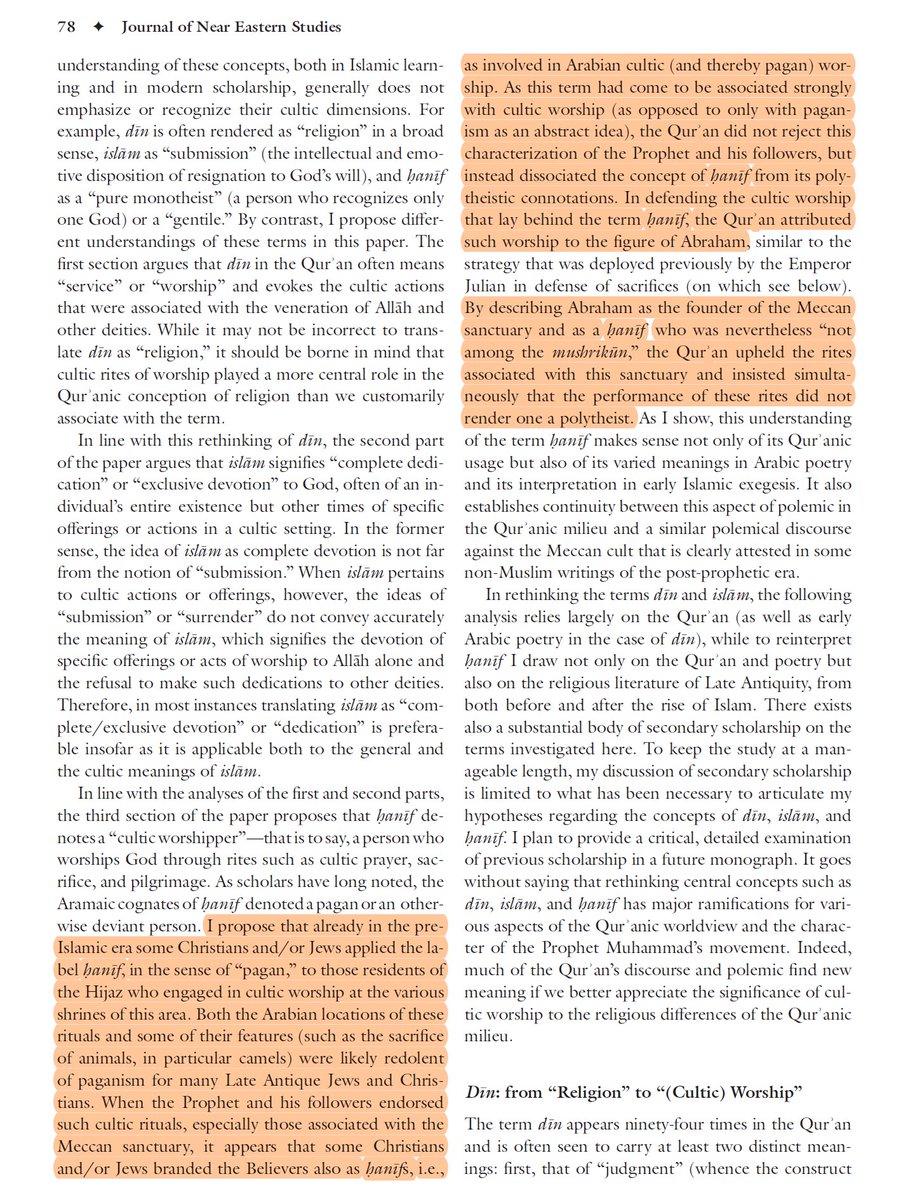
5/15 For example, sura 2 asserts that the Meccan sanctuary had monotheistic origins and was built by Abraham & Ishmael (vv. 125-127), who prayed to God: "make us 𝘮𝘶𝘴𝘭𝘪𝘮 to you, and of our progeny [raise] a nation that is 𝘮𝘶𝘴𝘭𝘪𝘮 to you" (v. 128). This verse ... 
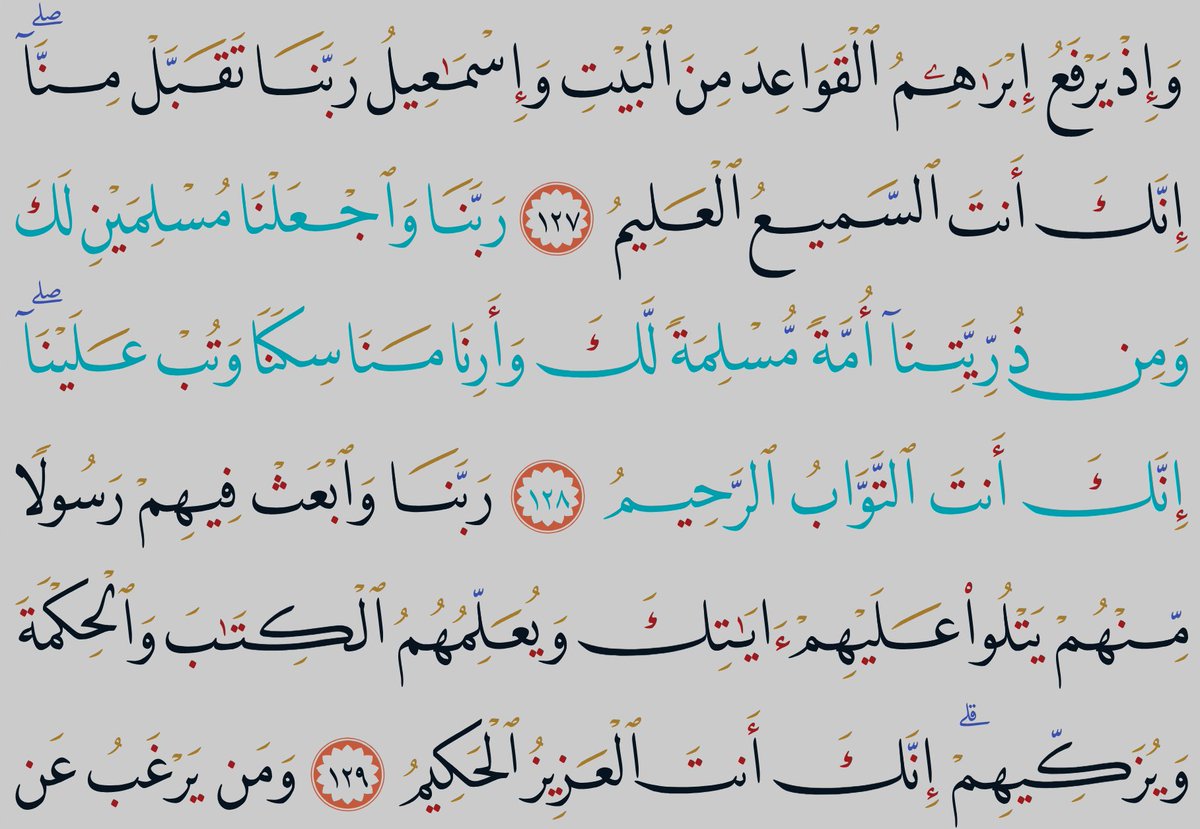
6/15 ... uses 𝘮𝘶𝘴𝘭𝘪𝘮 twice to emphasize the monotheistic pedigree of the Believers: they devoted their cultic worship 𝘸𝘩𝘰𝘭𝘭𝘺 & thus exclusively to the One God. Understanding 𝘮𝘶𝘴𝘭𝘪𝘮 as “submitter” again makes us miss the key point being made in this passage.
7/15 There are many other passages which connect 𝘢𝘴𝘭𝘢𝘮𝘢 or 𝘪𝘴𝘭𝘢̄𝘮 with the exclusive worship of Allāh or His status as the only Lord, so the notion of “submission” makes less sense in these texts than that of exclusive worship and monotheism.




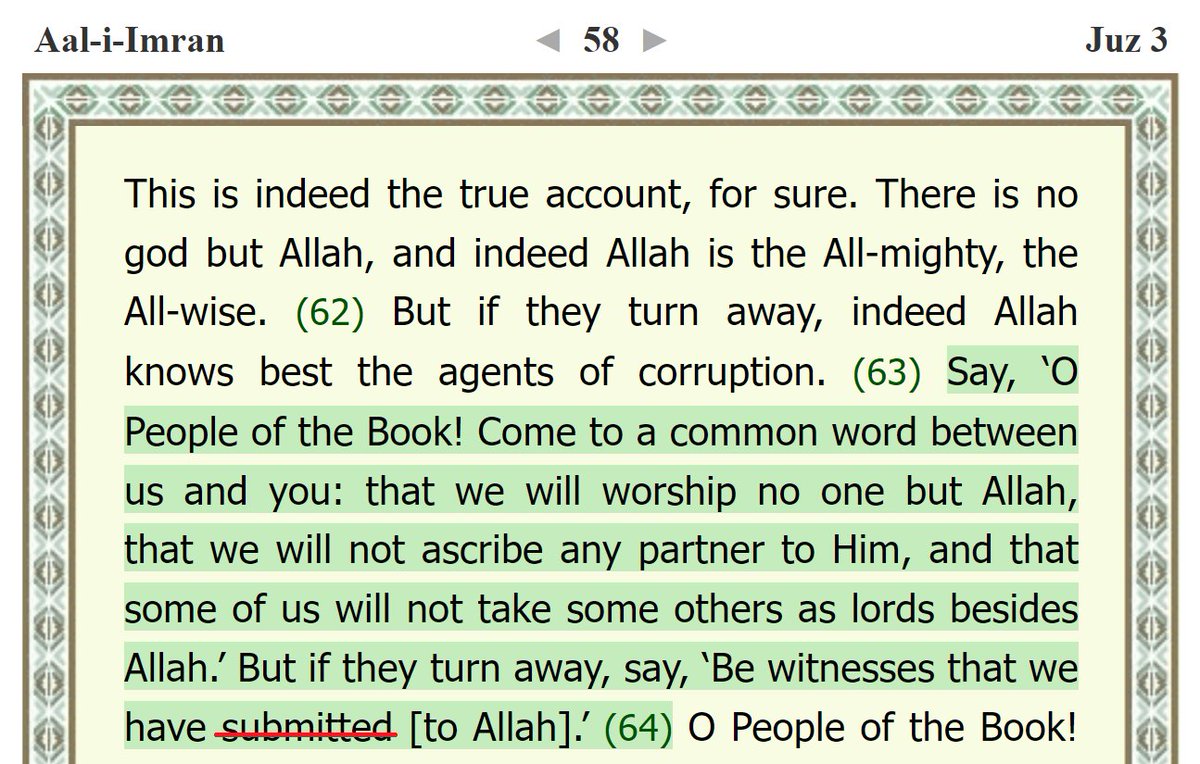
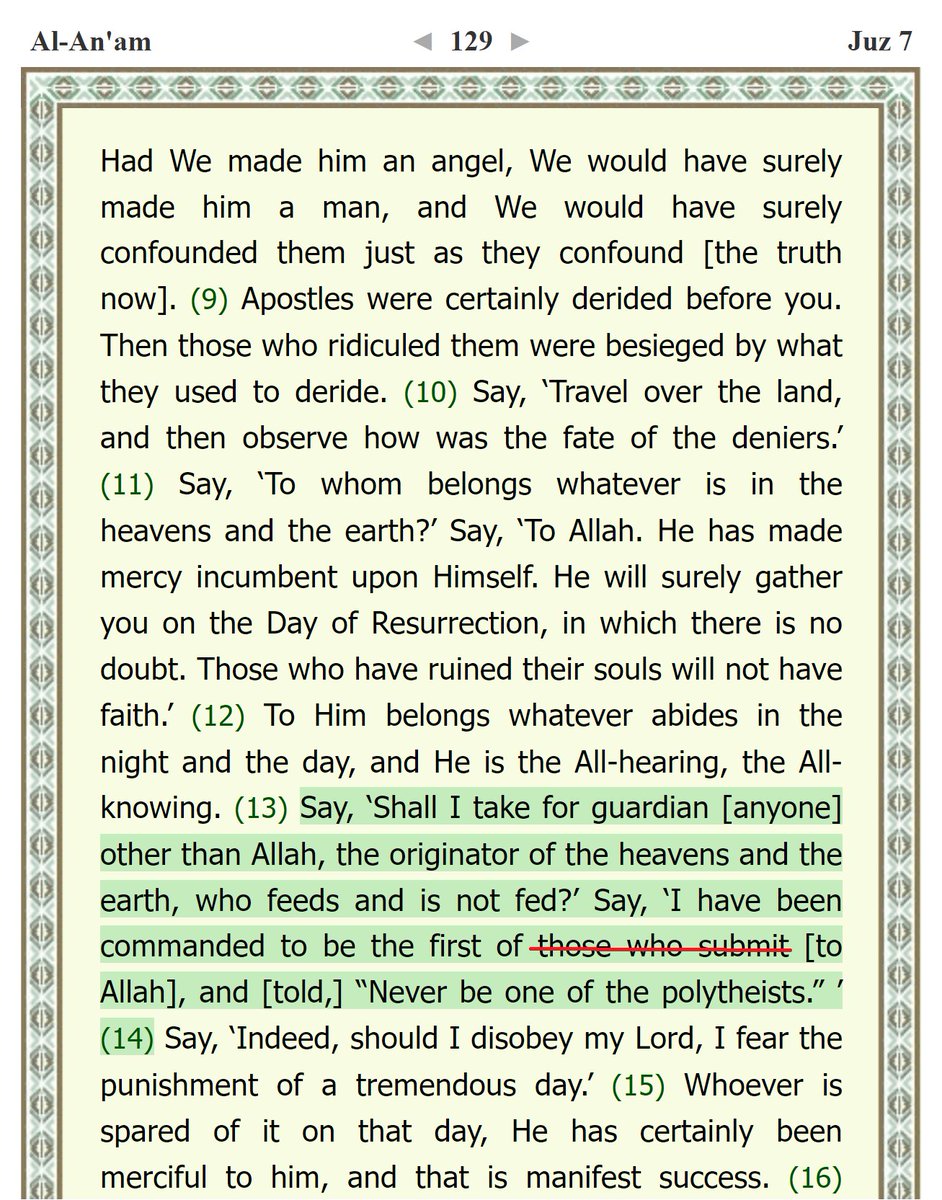
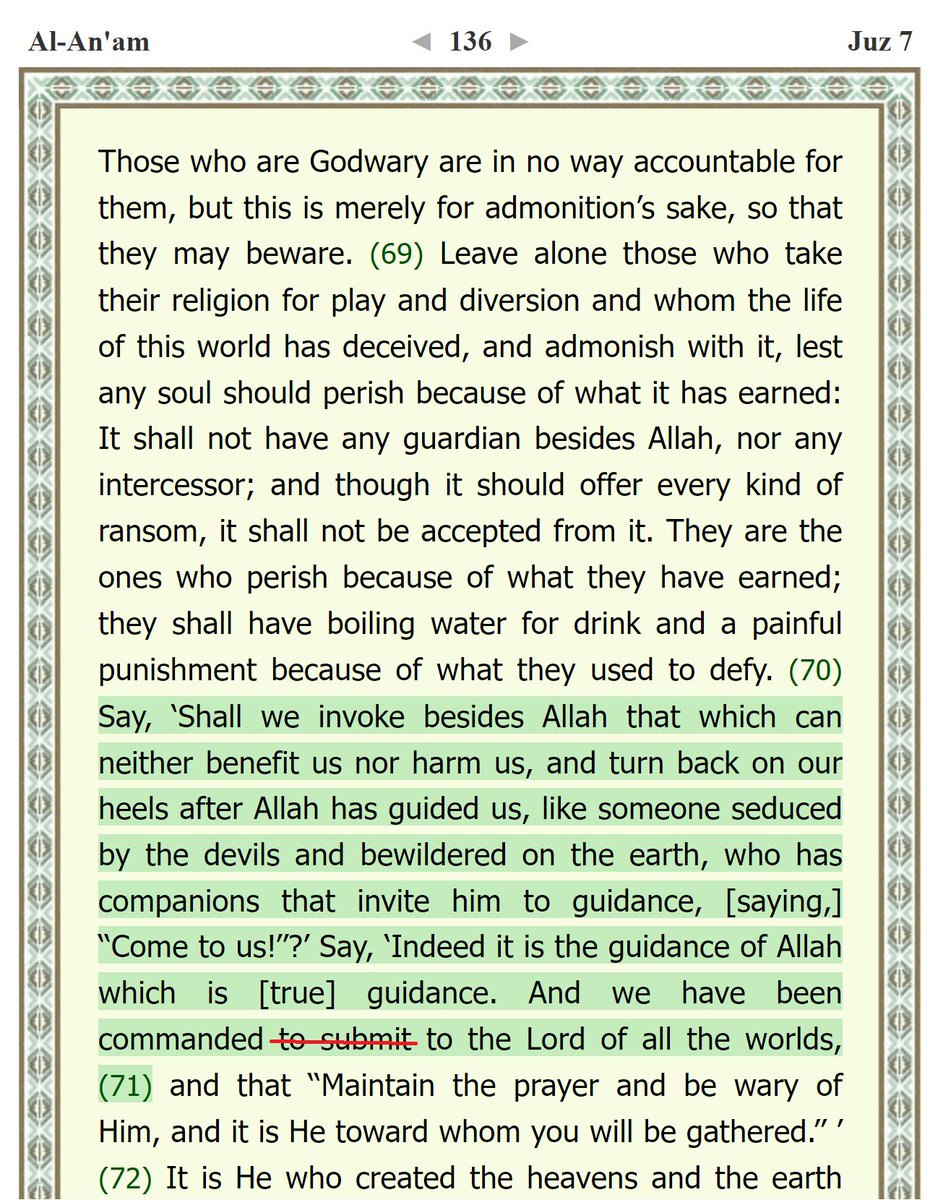
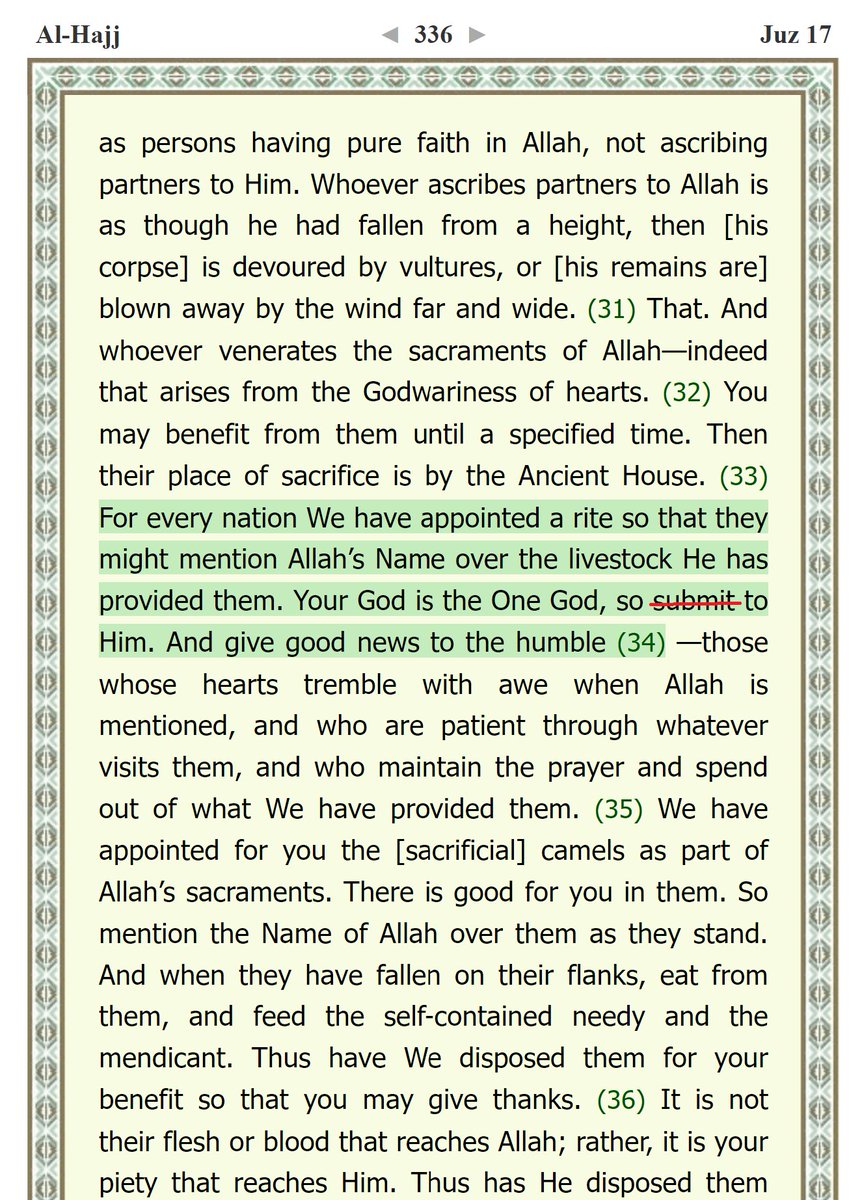
8/15 How does 𝘮𝘶𝘴𝘭𝘪𝘮 as “monotheist” work linguistically?
𝘴𝘢𝘭𝘪𝘮𝘢 (form I): to belong wholly [to s.o.]
𝘢𝘴𝘭𝘢𝘮𝘢 (form IV, transitive): to give [s.thing] wholly [to s.o.]
𝘢𝘴𝘭𝘢𝘮𝘢 in religious context: to give (or “devote”) one’s worship or self wholly to Allāh
𝘴𝘢𝘭𝘪𝘮𝘢 (form I): to belong wholly [to s.o.]
𝘢𝘴𝘭𝘢𝘮𝘢 (form IV, transitive): to give [s.thing] wholly [to s.o.]
𝘢𝘴𝘭𝘢𝘮𝘢 in religious context: to give (or “devote”) one’s worship or self wholly to Allāh
9/15 In this understanding, 𝘪𝘴𝘭𝘢̄𝘮 signifies monotheistic worship just like 𝘪𝘬𝘩𝘭𝘢̄𝘴̣. The former emphasizes giving one’s service *entirely* to the One God, the latter conveys giving one’s service *exclusively* to Him.
The meaning is the same.
The meaning is the same.
https://twitter.com/MohsenGT/status/1658482299590307843
10/15 In a similar way, Muḥammad b. Bashshār (d. 252/866) explained that 𝘮𝘶𝘴𝘭𝘪𝘮 has two meanings: “one who submits to God’s command” (now the dominant meaning) and “one who devotes [his/her] worship to Allāh alone” (𝘢𝘭-𝘮𝘶𝘬𝘩𝘭𝘪𝘴̣ 𝘭𝘪-𝘭𝘭𝘢̄𝘩 𝘢𝘭-ʿ𝘪𝘣𝘢̄𝘥𝘢𝘩). 
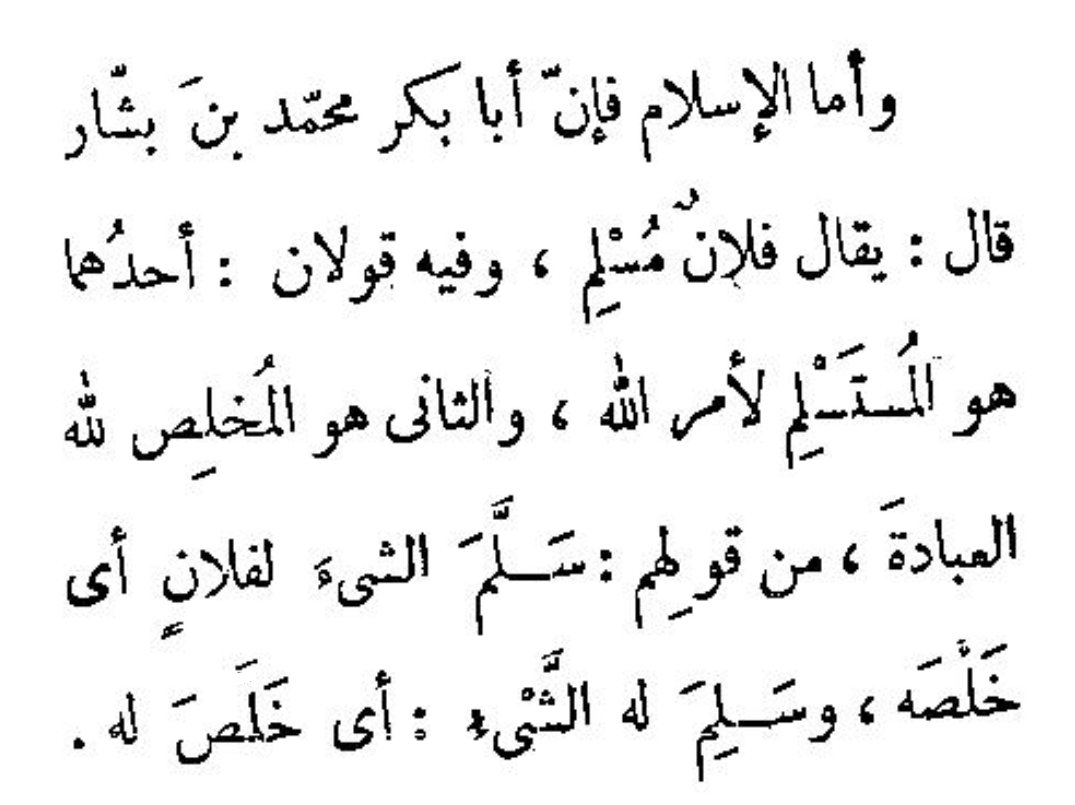
11/15 The synonymy between 𝘪𝘴𝘭𝘢̄𝘮 & 𝘪𝘬𝘩𝘭𝘢̄𝘴̣ and the connection of both with monotheism is found repeatedly in early (and sometimes even later) exegesis.
*screenshots from Muqātil b. Sulaymān and al-Māturīdī.




*screenshots from Muqātil b. Sulaymān and al-Māturīdī.
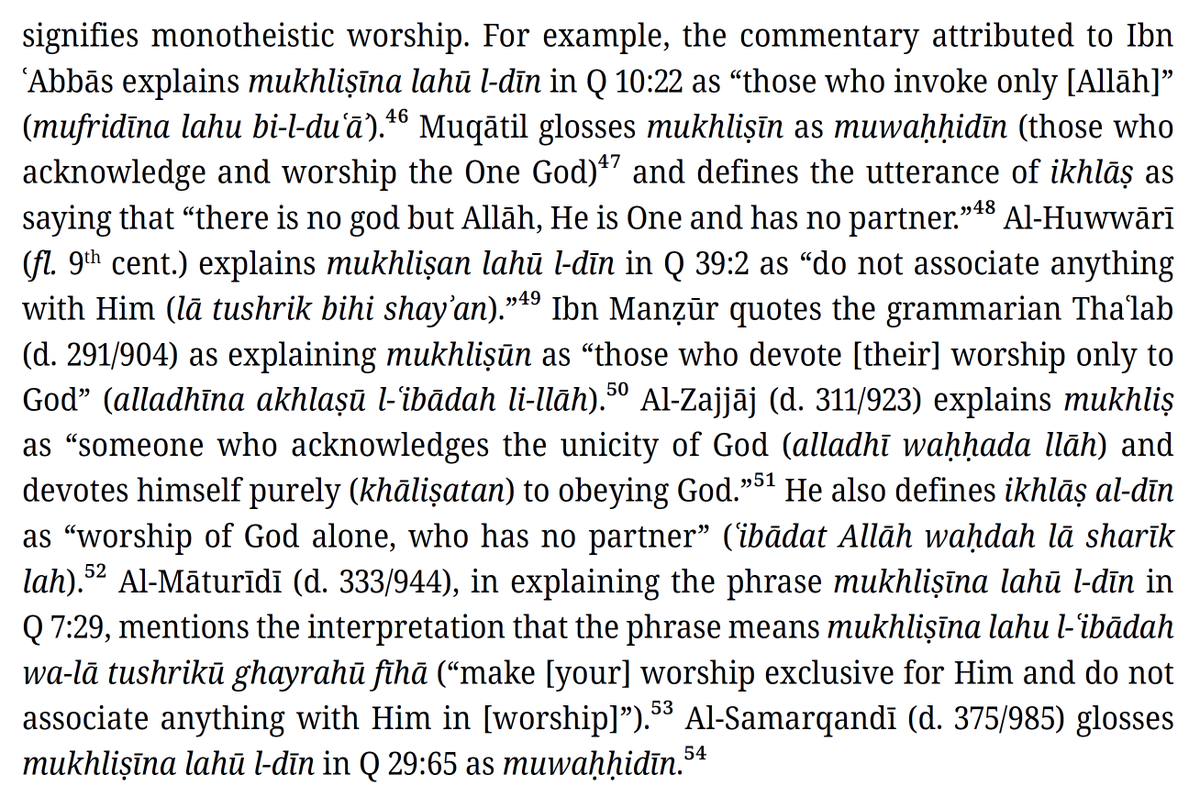
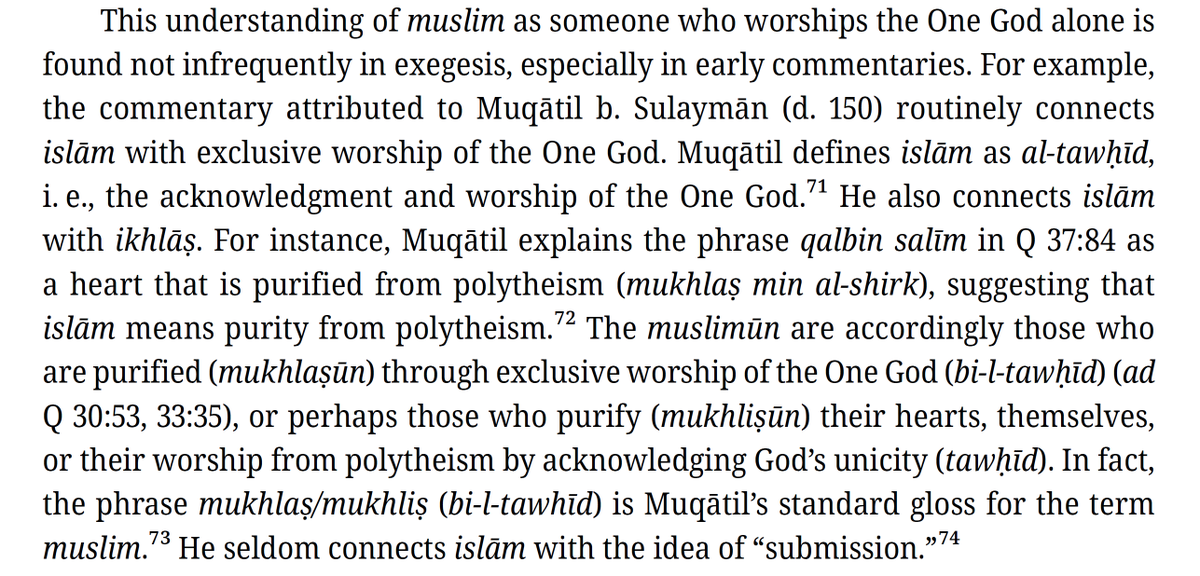


12/15 Meaning of 𝘪𝘴𝘭𝘢̄𝘮 is also illuminated by Q 39:29, which seems to liken a 𝘮𝘶𝘴𝘭𝘪𝘮 to a man who belongs wholly (𝘴𝘢𝘭𝘢𝘮𝘢𝘯/𝘴𝘢̄𝘭𝘪𝘮𝘢𝘯) to 1 master, not multiple masters.
Its relevance was noted by Ibn al-Anbārī (Muḥammad b. Bashshār's grandson!) & Māturīdī



Its relevance was noted by Ibn al-Anbārī (Muḥammad b. Bashshār's grandson!) & Māturīdī
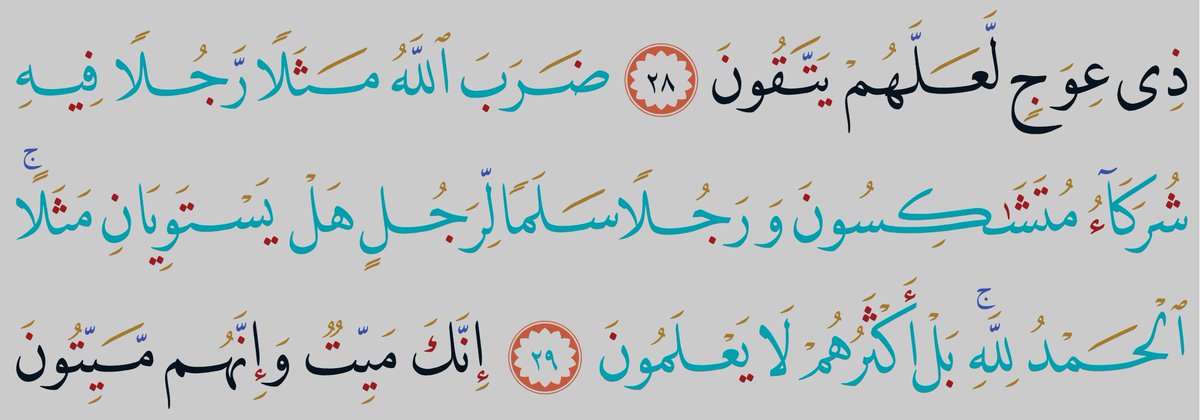


13/15 The same verse was used by David Baneth to argue (in a 1971 study), as I have done here, that 𝘪𝘴𝘭𝘢̄𝘮 means complete & thus exclusive devotion to God--in other words, monotheism.



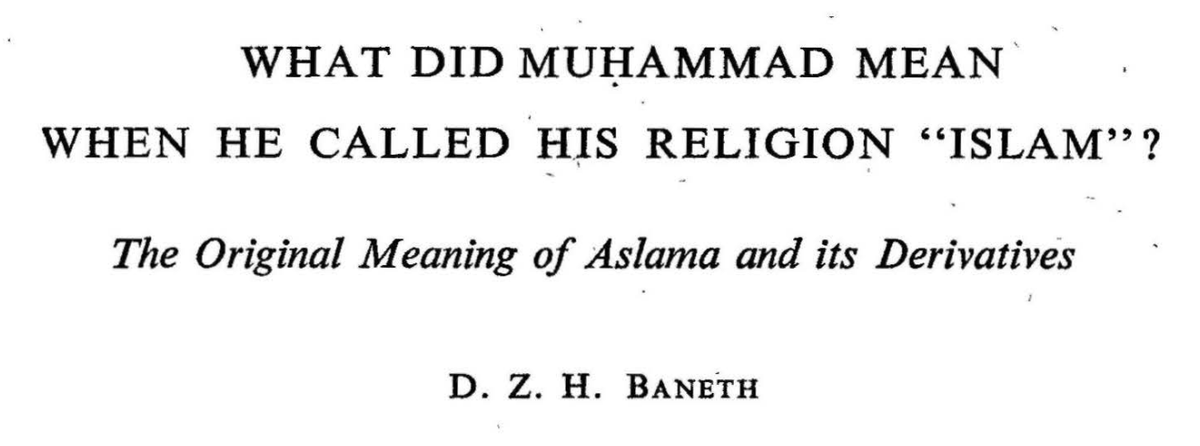
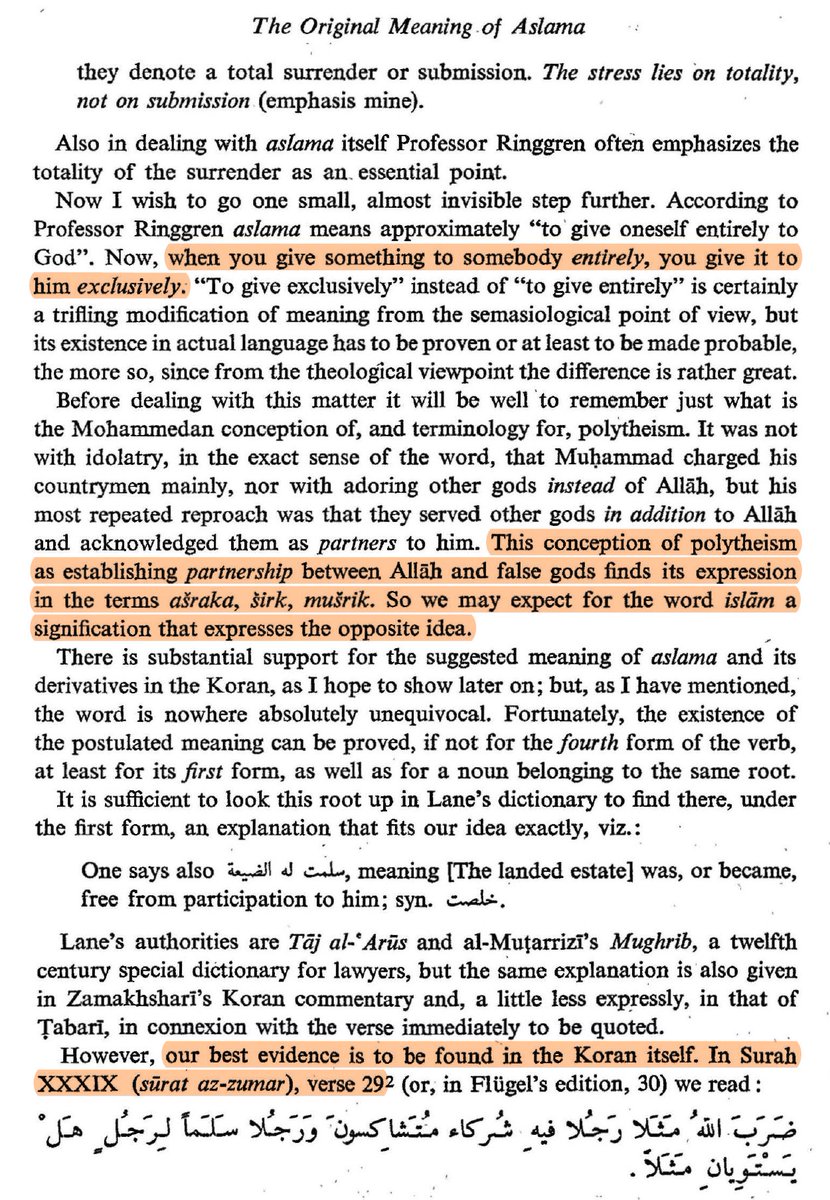
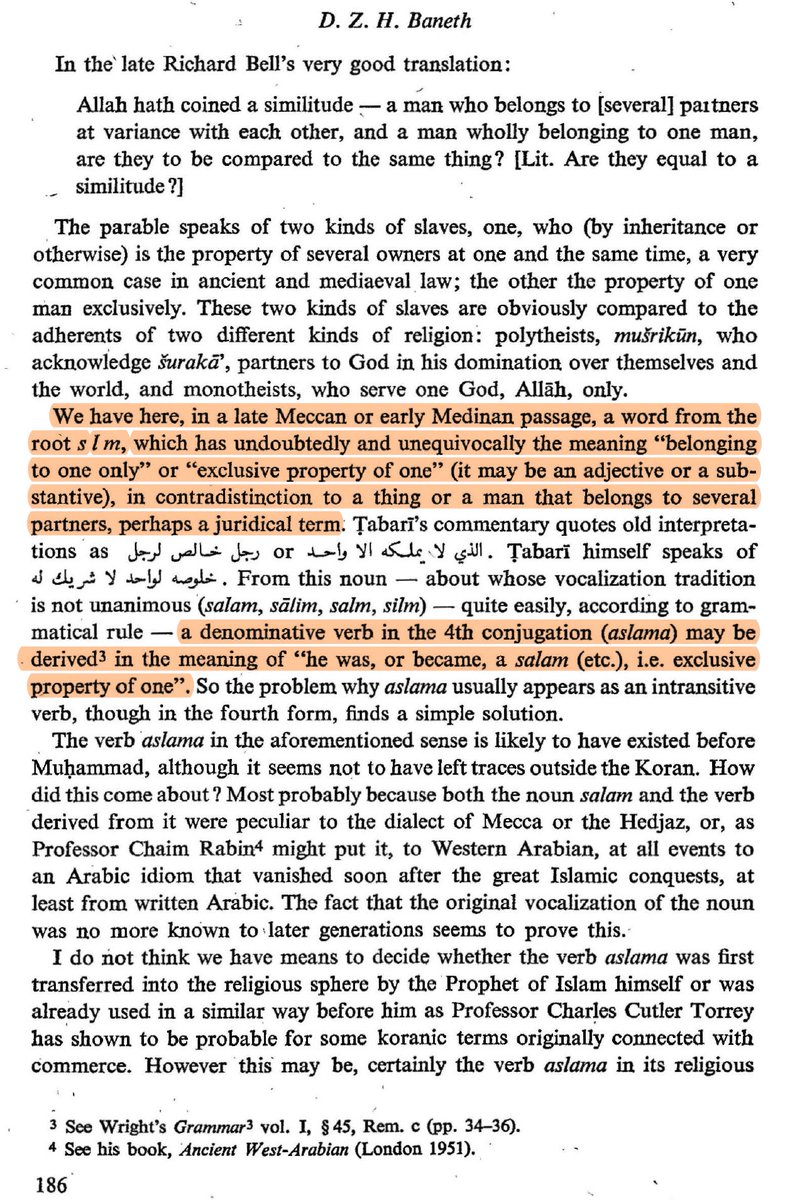
14/15 More recently, Juan Cole (@jricole) has argued - developing a suggestion by Emran El-Badawi (@emrane) - that 𝘪𝘴𝘭𝘢̄𝘮 refers to the “prophetic tradition of monotheism.”
I'm not sure if “tradition” is part of the picture, but I agree fully with the monotheistic aspect!


I'm not sure if “tradition” is part of the picture, but I agree fully with the monotheistic aspect!
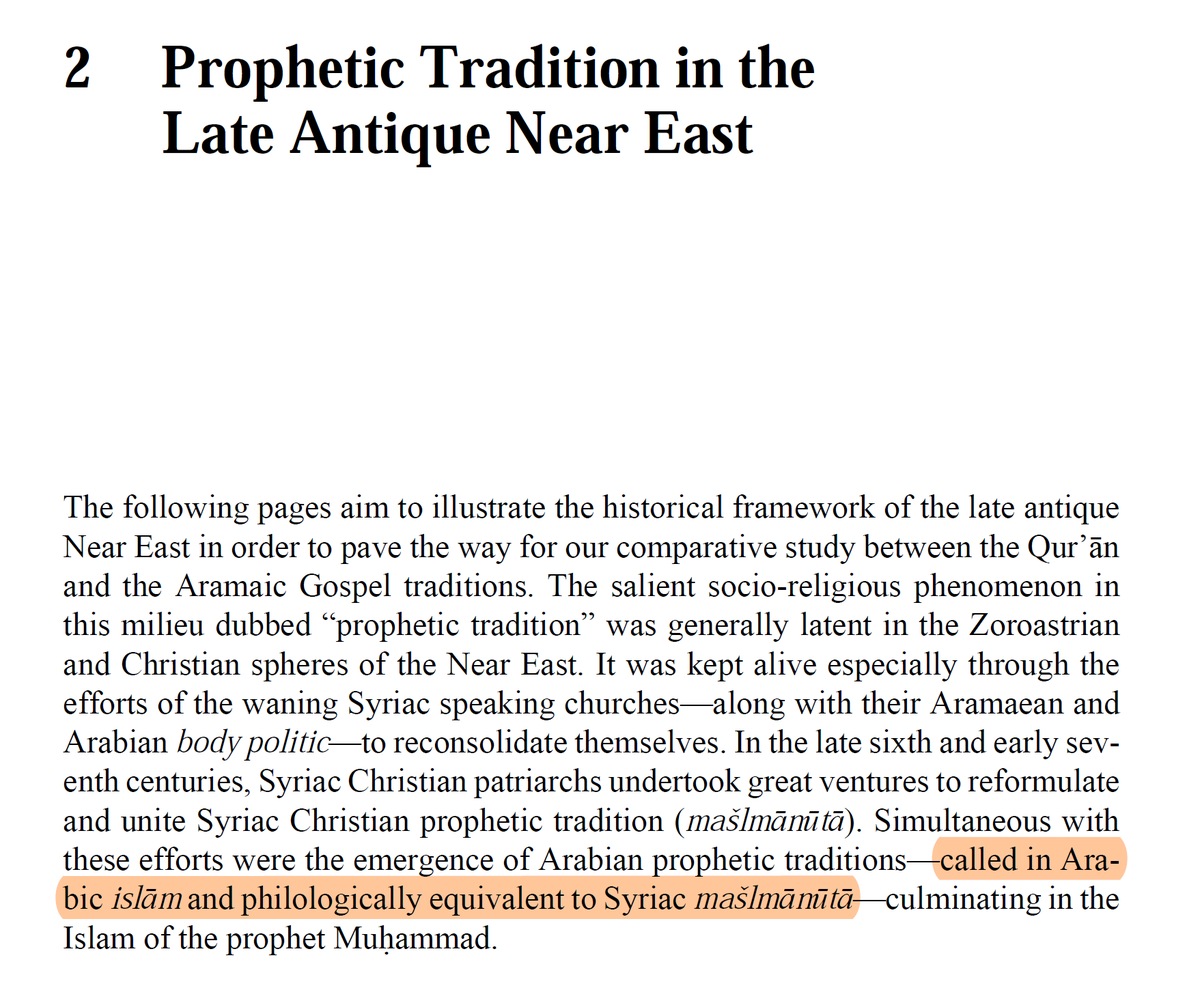
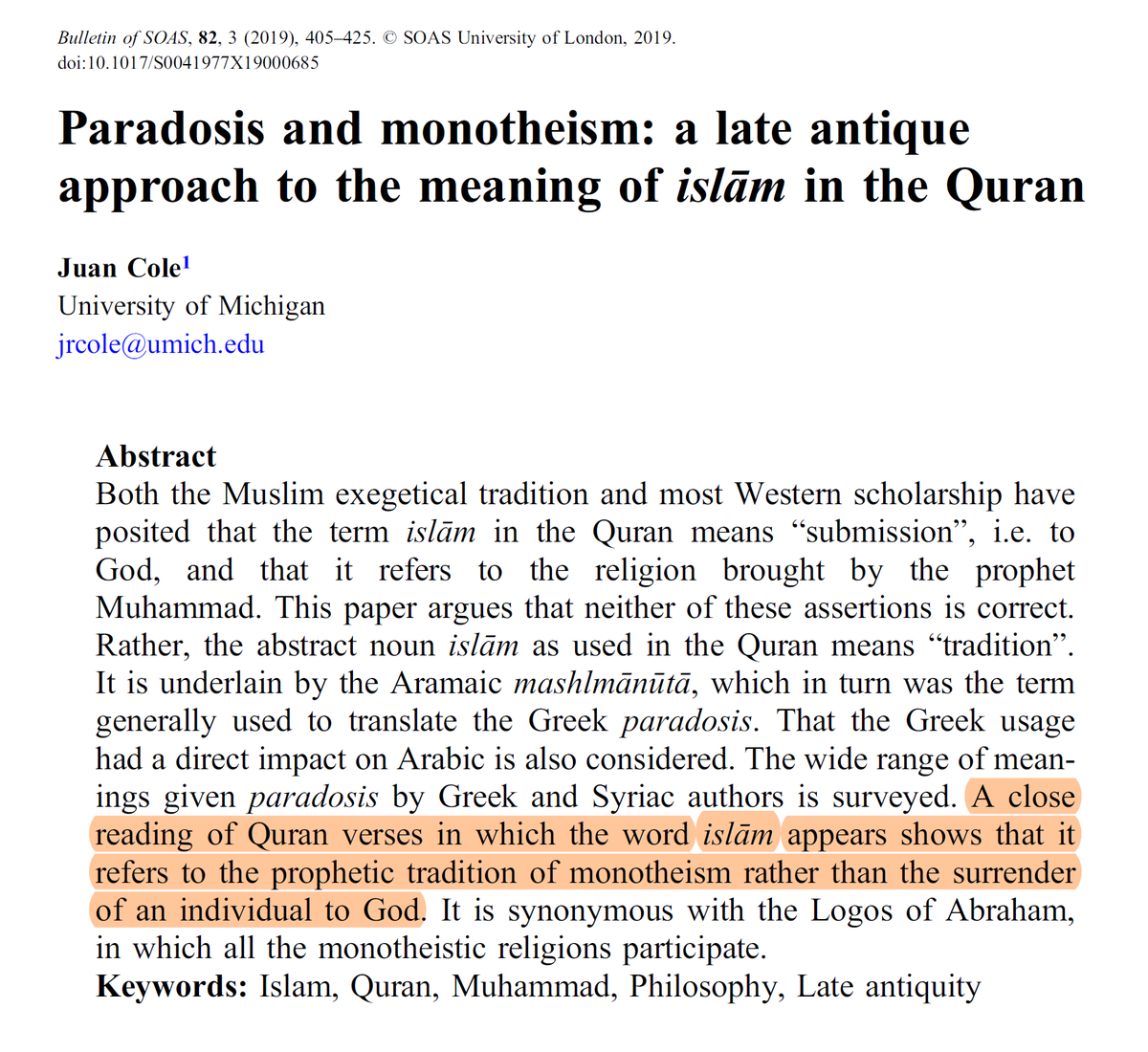
15/15 In fact, it is not clear if 𝘢𝘴𝘭𝘢𝘮𝘢/𝘪𝘴𝘭𝘢̄𝘮 ever signify “submission” in the Qur’an (though the connotation might exist in some cases).
In the light of the qur’anic and exegetical data, it is worth reconsidering the habit of glossing 𝘪𝘴𝘭𝘢̄𝘮 as “submission.”


In the light of the qur’anic and exegetical data, it is worth reconsidering the habit of glossing 𝘪𝘴𝘭𝘢̄𝘮 as “submission.”

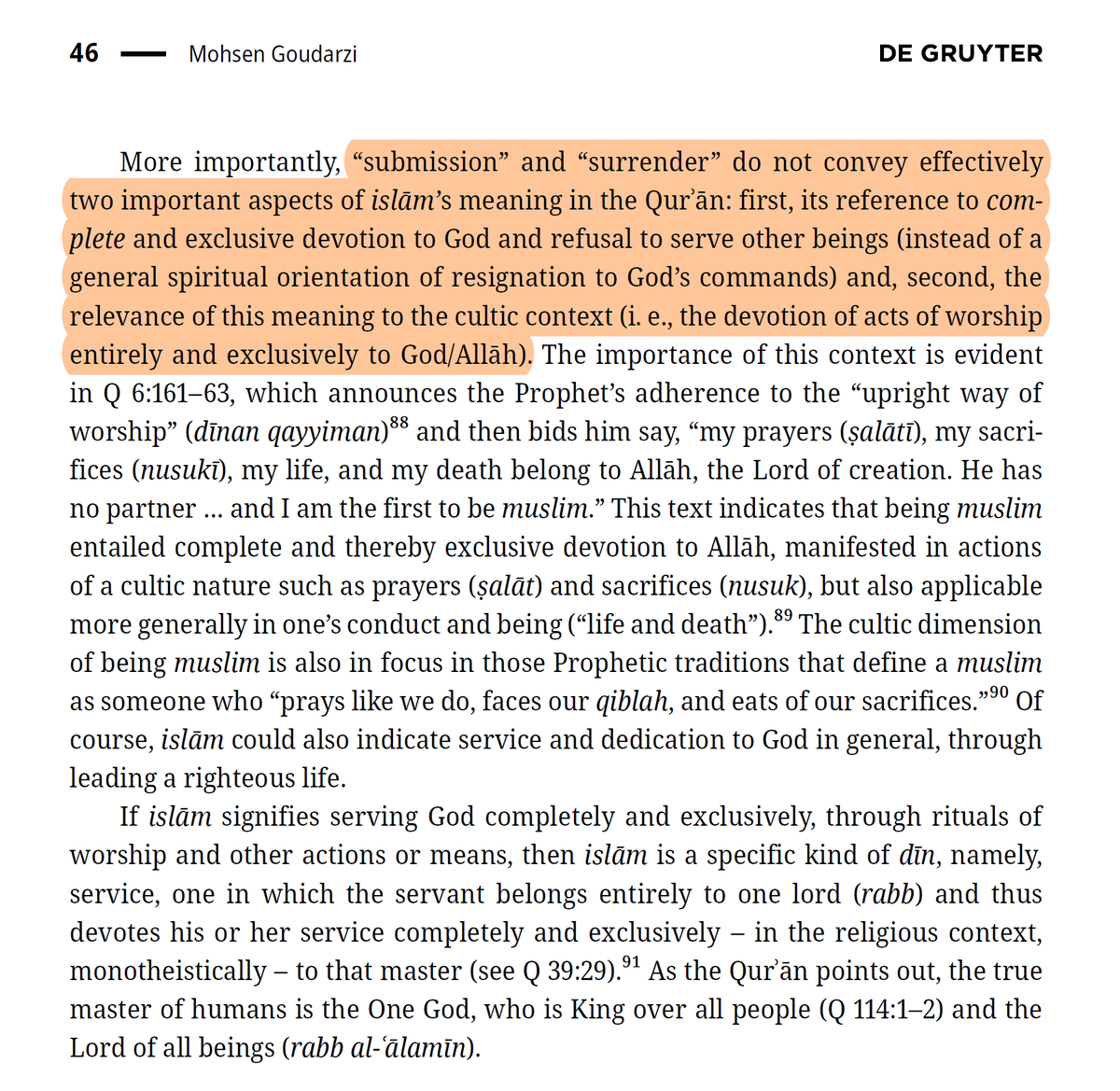
• • •
Missing some Tweet in this thread? You can try to
force a refresh








